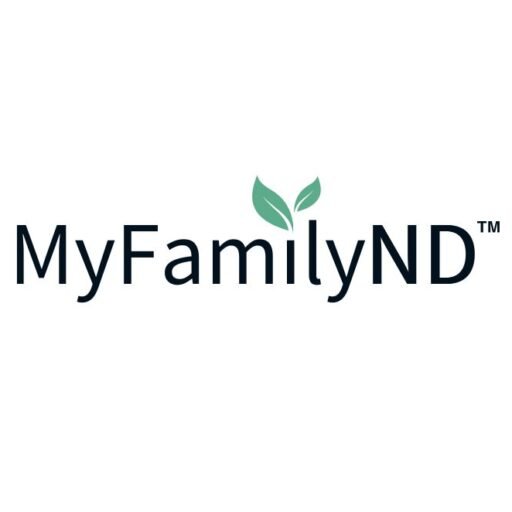
Essential Oils for Kids: Safe and Effective Ways to Use Natural Healing at Home
In recent years, the use of essential oils has gained significant popularity, with many parents seeking natural alternatives to support their children’s health and well-being. From boosting immunity and promoting better sleep to addressing emotional balance, essential oils offer a variety of benefits that can be integrated into your family’s daily routine. However, using essential oils safely is crucial, especially for children. Knowing which oils are appropriate for kids, how to dilute them, and the best methods for application ensures a safe and effective experience.
In this comprehensive guide, we will explore the benefits of essential oils for children, share safe usage tips, discuss age-appropriate oils, and provide guidance on how to incorporate them into your child’s health routine. Let’s dive into the world of natural healing oils and how they can support your child’s overall wellness.
What Are Essential Oils?
Essential oils are concentrated plant extracts obtained through steam distillation or cold pressing. These oils contain the natural compounds of the plants they are derived from, offering a wide range of therapeutic benefits. Each essential oil has distinct properties that can support various aspects of physical and emotional health.
For children, essential oils can be an effective natural remedy for common issues like sleep disturbances, colds, digestive problems, and anxiety. When used correctly, essential oils are a safe and holistic approach to enhancing your child’s well-being.
Benefits of Essential Oils for Kids
Essential oils can have a profound impact on children’s health, particularly when it comes to boosting immunity, promoting relaxation, and balancing emotions. Let’s explore some of the key benefits of essential oils for kids.
1. Boosting Immunity and Supporting Respiratory Health
Essential oils such as eucalyptus, tea tree, and lavender are known for their antimicrobial and antiviral properties, making them ideal for supporting the immune system and respiratory health. They can help protect against common illnesses like colds, flu, and coughs.
- Eucalyptus: Eucalyptus is commonly used to ease respiratory issues. It can help clear nasal passages, relieve congestion, and promote easier breathing. It’s especially helpful for children who suffer from colds or seasonal allergies.
- Tea Tree: Known for its powerful antibacterial and antiviral properties, tea tree oil can help boost the immune system and fight off infections.
- Lavender: Lavender oil is often used for its calming effects, but it also has mild antibacterial properties that can help support overall health.
2. Promoting Better Sleep
Sleep disturbances are common among children, whether caused by anxiety, nightmares, or simple restlessness. Certain essential oils are known to promote relaxation and improve sleep quality, helping children fall asleep faster and stay asleep longer.
- Lavender: Lavender is one of the most popular essential oils for promoting sleep. Its calming properties can help reduce stress, anxiety, and restlessness, allowing children to relax and unwind before bed.
- Roman Chamomile: This gentle oil has a soothing effect on the nervous system and can help reduce anxiety and promote restful sleep.
- Cedarwood: Cedarwood oil has a grounding effect and can help improve the quality of sleep by calming the mind and body.
3. Balancing Emotions and Reducing Stress
Children are often exposed to stressful situations, such as changes in routine, school pressures, or family dynamics. Essential oils can help support emotional balance, reduce stress, and promote a sense of calm.
- Frankincense: Frankincense oil is known for its grounding and centering properties, making it ideal for emotional balance. It helps reduce feelings of anxiety and stress, encouraging a calm, peaceful atmosphere.
- Bergamot: This citrus oil has mood-lifting properties and is often used to reduce feelings of anxiety, depression, and irritability.
- Ylang Ylang: Known for its calming and uplifting effects, ylang ylang oil can help soothe nervous tension and promote emotional balance.
Safe Use of Essential Oils for Children
While essential oils are a wonderful natural healing tool, it’s essential to use them safely when applying them to children. Essential oils are highly concentrated, so incorrect use can cause irritation, allergic reactions, or even adverse health effects. Here are some important safety tips to ensure that you use essential oils safely and effectively for your child.
1. Always Dilute Essential Oils
Essential oils should never be applied directly to the skin without dilution, especially for children. Diluting essential oils helps reduce the risk of skin irritation and sensitivity. The general rule is to use a 1% to 2% dilution for children.
- For babies and toddlers (under 2 years old): Use a very low dilution, typically 0.5%. For example, mix one drop of essential oil with 2 tablespoons of carrier oil.
- For children ages 2 to 6: Use a 1% dilution, which means adding 1 drop of essential oil to 1 teaspoon of carrier oil.
- For children ages 6 and older: A 2% dilution is safe, meaning 2 drops of essential oil per teaspoon of carrier oil.
2. Choose Age-Appropriate Essential Oils
Not all essential oils are suitable for children, especially those under 2 years old. Some oils can be too strong or even harmful to young children, so it’s important to select oils that are known to be safe for their age group.
Safe essential oils for children (ages 2 and up):
- Lavender
- Roman Chamomile
- Frankincense
- Eucalyptus (used cautiously for children over 2 years old)
- Tea Tree
- Bergamot
- Cedarwood
- Lemon
Essential oils to avoid for children (under 2 years old):
- Peppermint
- Eucalyptus (for children under 2)
- Clove
- Cinnamon
- Wintergreen
- Oregano
3. Always Conduct a Patch Test
Before using an essential oil on your child’s skin, conduct a patch test to check for any allergic reactions or skin sensitivity. To do this, dilute a small amount of essential oil and apply it to a small area of your child’s skin, such as the inside of their wrist or elbow. Wait for 24 hours and check for any signs of irritation or allergic reaction.
4. Use Safe Application Methods
There are several ways to apply essential oils to children, each with its own set of precautions. Let’s explore some of the most common and safe methods.
- Diffusing: Using a diffuser is one of the safest ways to expose your child to essential oils. It allows the oils to disperse into the air, creating a calming or healing atmosphere. For children, use 1 to 2 drops of essential oil in a diffuser, ensuring the room is well-ventilated.
- Topical Application: When applying essential oils topically, always dilute them in a carrier oil (such as coconut, jojoba, or almond oil). You can apply diluted oils to your child’s chest, back, or feet. Avoid sensitive areas like the eyes and mucous membranes.
- Bath: Adding a few drops of diluted essential oil to a bath can be a great way to promote relaxation or relieve skin issues. Mix the oils into the bath water after diluting them with a carrier oil to prevent irritation.
- Inhalation: You can also encourage your child to inhale essential oils directly from a cotton ball or tissue, or by placing a drop in a bowl of hot water and having them inhale the steam (supervise them carefully to avoid burns).
5. Be Mindful of Potential Risks
Although essential oils are natural, they can still pose risks if used improperly. Some essential oils can cause skin irritation, allergic reactions, or interfere with medications. Always read the instructions and be mindful of any health concerns your child may have, such as asthma or allergies to specific oils.
Age-Appropriate Essential Oils for Children
Now that we’ve discussed general safety guidelines, let’s take a closer look at age-appropriate essential oils that are safe for children.
Essential Oils for Babies (Under 2 Years Old)
For babies and infants, it’s important to use only very mild essential oils and dilute them heavily. Always avoid strong oils like peppermint and eucalyptus for babies, as they can be too intense for their delicate systems.
- Lavender: Known for its soothing and calming properties, lavender is safe for babies when diluted and can be used to promote relaxation, support sleep, and alleviate skin irritations.
- Roman Chamomile: A gentle oil that can help soothe upset stomachs, reduce anxiety, and promote sleep.
- Frankincense: Known for its calming effects, it can be used to promote relaxation and support respiratory health.
Essential Oils for Toddlers (Ages 2-4)
Toddlers can begin using a broader range of essential oils, but always ensure they are diluted properly. Oils like lavender, chamomile, and frankincense can be helpful for emotional balance and relaxation.
- Lavender: Promotes calmness, helps with sleep, and eases anxiety.
- Chamomile: Soothes skin irritations, helps with digestion, and promotes relaxation.
- Cedarwood: Grounding and calming, helps improve sleep.
Essential Oils for Children (Ages 5 and Older)
Children ages 5 and older can safely use a wider variety of oils, including oils that promote emotional balance and physical well-being.
- Bergamot: Uplifts mood, reduces stress, and promotes a positive atmosphere.
- Eucalyptus: Supports respiratory health and eases congestion (use with caution and dilute properly).
- Peppermint: Safe for children over 5, helps with digestion, nausea, and headaches.
- Tea Tree: Antibacterial and antifungal, ideal for supporting skin health and immunity.
Conclusion
Essential oils offer a safe and effective way to support your child’s health in a natural and holistic manner. Whether you’re seeking to boost immunity, promote better sleep, or balance emotions, essential oils provide a wide range of benefits for kids. However, it’s essential to use them safely and appropriately by following dilution guidelines, choosing age-appropriate oils, and using proper application methods.
By incorporating essential oils into your family’s health routine, you can help support your child’s emotional and physical well-being in a natural, non-invasive way. Always remember to consult with a healthcare professional if you have concerns about using essential oils for your child, especially if they have pre-existing health conditions.
With proper use, essential oils can become a valuable tool for enhancing your child’s health and creating a nurturing, healing environment at home.



